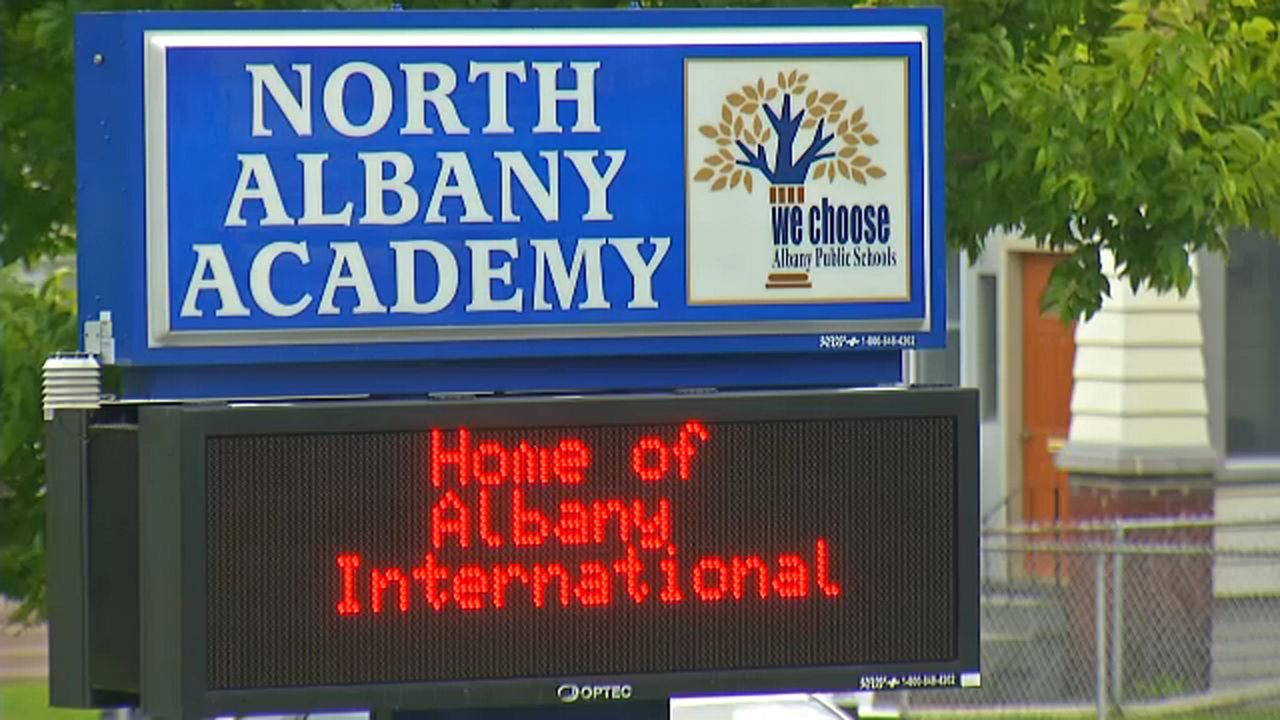Voters rejected a $27.1 million school budget on Tuesday night for the Rensselaer School District, leading to an uncertain future for the district’s students and teachers.
When the sun is shining, there are few places Boden Ruetecki would rather be than at the playground with his father, Todd.
The 6-year-old boy lives with autism spectrum disorder.
“He's a very bright kid, actually pretty social and he sees the world through a different lens,” said Ruetecki.
It’s been two years since Boden became a student at the Rensselaer City School District.
“He started in pre-K, it was actually a very rough transition for him,” Ruetecki recalled.
Ruetecki says his son is doing much better now as he prepares for the start of first grade.
“Without the support he gets from the school, he wouldn’t be able to remain in school, they do a phenomenal job,” said Ruetecki.
His concern is that his son and other students may not continue getting the same quality of education due to the district's struggling finances.
“As a parent, it is difficult because you do not know what type of impact it is going to have down the road,” said Ruetecki.
“Those of us who understand where this goes, it keeps us up at night,” said Joe Kardash, Rensselaer City School District superintendent.
District superintendent Joe Kardash is already trying to make ends meet with new expenses and protocols related to the coronavirus.
His job will likely become even harder after Tuesday night when voters rejected the school’s $27.1 million budget proposal, largely because it included a 9 percent property tax increase to cover the shortfall.
“We don’t have enough revenue to support the appropriate education and move forward,” said Kardash.
After the failed vote, the school will default to a contingency budget with no tax increase.
Kardash says they’ll have to rely on fund balance to keep programs going, but fears they could run out of money within two years.
“There’s not really anything else to cut,” said Kardash.
The special education programs that Bowden relies on are mandated by the state, but Kardash says elective programs and small class sizes are more likely to be impacted.
Despite the tough road ahead, Ruetecki is optimistic parents and teachers will be able to find a solution that’s in the best interest of their children.
“When you look down the road, it is really about our community having a come together to support the kids we have in the district,” said Ruetecki.






